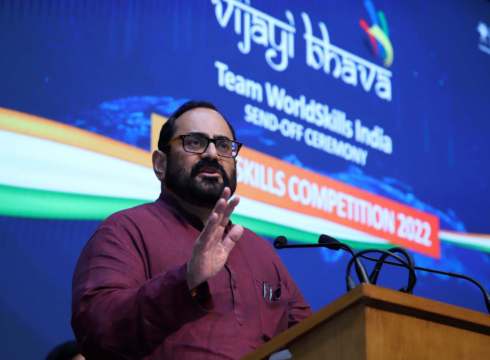SUMMARY
Government is still waiting for representations from social media platforms on building an SRO for fact-checking information
The government is working on draft data embassy norms, which will be notified soon
The Digital India Bill will likely replace the two-decade old Information Technology Act, 2000
Inc42 Daily Brief
Stay Ahead With Daily News & Analysis on India’s Tech & Startup Economy
Speeding up the introduction of the Digital India Bill, Minister of State (MoS) for Electronics and Information Technology (MeitY) Rajeev Chandrasekhar has said that stakeholder consultation on the Bill will start from next month.
“Digital India Bill will have extensive consultation across the country… Keeping in mind our pipeline of goals, it will start in March. The first consultation will start in New Delhi,” the MoS told the Economic Times.
It was previously reported that the government would soon conduct multi-city, multi-stakeholder meetings to build stakeholder consensus. Besides, it is likely that tech giants, including Google, Meta and Microsoft, would also join the consultation process.
While the fine print of the proposed norms is yet to become public, the draft norms will likely replace the two-decade old Information Technology Act, 2000. It will introduce a comprehensive framework to govern new aspects of the internet, including user harm, non-personal data ownership, cyberbullying, doxing, and other cybercrimes.
MoS Chandrasekhar added that the government was still waiting for representations from social media platforms, including Facebook, Twitter and Google, on building a self-regulatory organisation (SRO) for fact-checking information. He said that the Centre will wait for the big tech players to send in their proposals for such an SRO, adding that it will not bring out a notification until a structure for an SRO is formulated.
In the same breath, the minister said that the Press Information Bureau (PIB) would continue to be the fact-checker of all government-related news.
This comes right after executives of social media platforms reportedly told MeitY officials, during a meeting, that they would prefer a self-regulatory approach to verify non-government-related news. Besides, Chandrasekhar also told the publication that the industry players would create ‘criteria for a trusted network of fact checkers that the SRO can rely on’.
He reiterated that the three Grievance Appellate Committees (GACs), which are slated to become operational from March 1, would make sure that grievance redressal works at the intermediary level.
Envisaged as part of new amendments to the IT Rules late last year, the GACs will allow users to file complaints against social media platforms and make these platforms liable for grievance redressal.
The Data Embassy Tryst
The minister noted that the recently unveiled concept of a data embassy was witnessing a ‘lot of interest’, owing to India’s reputation as a safe and trusted place for data storage. He added that the on-ground implementation of this interest would also give a major boost to the local IT sector.
Noting that the ministry was already working on draft data embassy norms, the MoS said that a notification in this regard would be released soon.
“We will notify data embassy norms in terms of the data centre’s size and whether there can be virtual data embassies. The norms are being drafted,” the minister said.
On setting up data embassies across the country and not just Gujarat, Chandrasekhar said that it was too early to comment on that. He added that if the project is successful and there is a dearth of capacity in one place, the ‘obvious, logical thing’ would be to set up more such facilities.
The Digital India Act would be the umbrella framework, which has been envisaged with governing the new age of the internet. The new norms will likely introduce a slew of terms and expand the jurisdictional power of the government to cover the ambit of emerging technologies.
While the minister has said that the draft norms would be opened for stakeholder consultation in March, Chandrasekhar had previously claimed that the draft Act would be opened for public feedback in December 2022. While it missed the deadline, it remains to be seen whether it again reneges on its commitment. Either way, the country is headed towards an overarching law that will guide it this decade.
Note: We at Inc42 take our ethics very seriously. More information about it can be found here.


